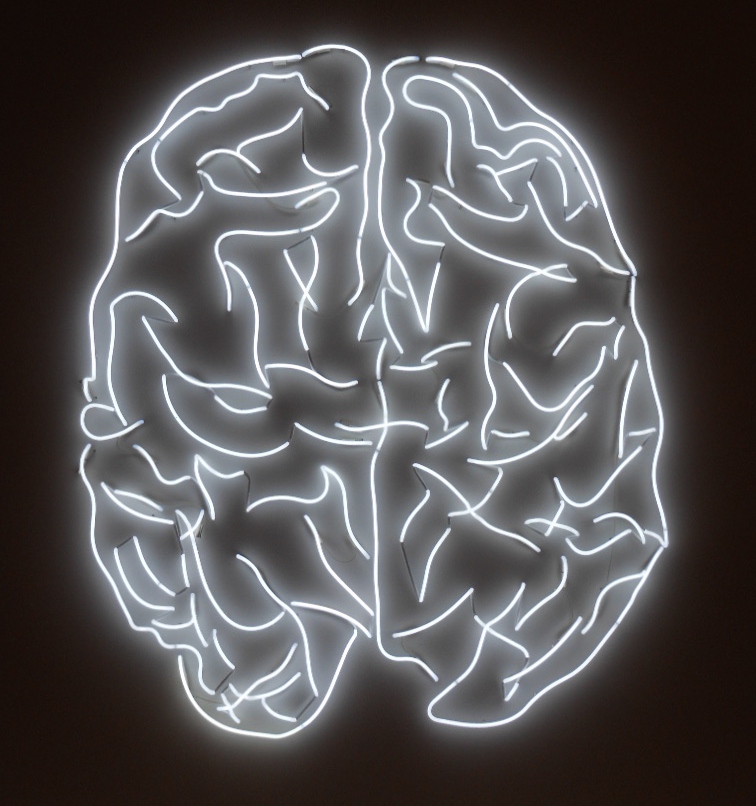The Ethics of Cell Cultured Brains
Earlier this month, the New York Times reported that Yale neuroscientist Nenad Sestan and his team successfully produced active brain cells through a process of culturing the inactive brain matter of deceased creatures. The cells were active for more than mere moments—some of them survived for weeks at a time. These results may lead to important discoveries about the way the brain works, and could, in the long term, be an important step to understanding and/or curing brain diseases and disorders.
Sestan is interested in generating activity beyond individual cells to entire slices of brain matter. Doing so would allow him to study what neuroscientists call the “connectome”—essentially, the wiring of the brain and its synapses. The New York Times piece focused on Sestan’s work in particular, but he was eager to point out that other scientists are doing similar work. In fact, some scientists have cell cultured “mini-brains” that demonstrate the kind of neural activity that one might expect to see in fetuses at 25-29 weeks after conception.
In Sestan’s work, and in other work like it, brain matter is obtained from the bodies of deceased humans who, while living, consented to donate their bodies to assist in scientific research. Because the cells and, potentially, organs being cultured here are brain cells and organs, these processes are philosophical and ethical quagmires. There is much potential for discovery concerning the answers to fascinating questions, but there is also the potential for some pretty significant ethical violations.
One concern has to do with whether the individuals who donated their bodies to science actually consented to the creation of beings that can think. As long as humans have understood that brains are responsible for thought, we’ve been obsessed with the notion of a “brain in a vat.” It pops up relentlessly in pop culture, and even in academic philosophy. Noteworthy examples include the 1962 sci-fi/horror classic The Brain That Wouldn’t Die and the 1983 Steve Martin comedy The Man with Two Brains. Whenever the concept arises in popular culture, one thing is clear—we attribute personhood to the brain. That is, we think of the brain as a someone rather than a something. If this is true, though, the consent needed from the donor is not the consent required to simply use that donor’s body for testing. It is the consent that might be required if one were to clone that donor or to create a child from that donor’s reproductive material. One might think that the consent conditions for that might be very different, and might well be consent that the donor did not provide.
Some concern has been raised over whether this kind of experimentation could lead to the creation of suffering—if active brain cells or a series of connected cells have the potential to give rise to thoughts or experiences of some kind, they might give rise to negative experiences. Some neuroscientists view this possibility as remote, but, nevertheless, Christof Koch, the president and chief scientist at the Allen Institute for Brain Science, claims, “it would be best if this tissue were anesthetized.”
The existence of active brain states in a network gives rise to the possibility of the existence of mental states. One important question, then, becomes: what kinds of mental states are morally relevant? Is there something inherently valuable about thoughts or about sensory experiences? (Are there such things as sensory experiences in the absence of sense organs and an entire central nervous system?) If there is something valuable about such states, is it always a good thing to bring them about? In that case, every time a scientist creates a cell or system of cells capable of having a thought or experience, that scientist has done something that increases the overall level of value in the world. On the other hand, we have no way of knowing what kinds of experiences are being produced. If the sole experience produced in the creation of a cell or a system of cells is a negative experience, then the scientist has arguably done something wrong by generating that cell or system of cells.
Some philosophers think that it isn’t merely the presence of thoughts, but the presence of thoughts of a particular kind that make a being a person. Personhood, according to many moral theories, is a characteristic a being must possess in order to be a member of the moral community. According to philosopher Harry Frankfurt, a being is a person if and only if their first order desires are guided by their second order desires. So, a person might have a first-order desire to eat a slice of cake. They might have a second order desire to refrain from eating the cake, say, because they are on a diet. Persons, and only persons, can use their second order desires to guide their first order desires. Through the process of having thoughts about one’s own thoughts and desires about one’s own desires, a being starts to develop an identity.
The truth is, we simply don’t know how this works—we don’t know what conditions need to be in place for either the existence of first order or of second order thought. We don’t know how brain matter works, and we don’t know exactly what “thoughts” consist of. We don’t know if or how mental states may be reducible to brain states. We don’t know what states of matter might give rise to second order beliefs and desires—we don’t know the conditions under which we might create a “brain in a vat” that is a person and has an identity. What’s more, the brain wouldn’t be capable of communicating that fact to us (unless, of course, the horror movies have it right and all such brains can communicate telepathically—but I wouldn’t bet on that.)
As technology progresses, we run into a familiar ethical issue over and over again: what steps are we morally justified in taking, given that we don’t really know what we’re doing or how our actions may ultimately affect other beings with interests that matter? When we know we’re potentially dealing with thinking beings, we must proceed with caution.





